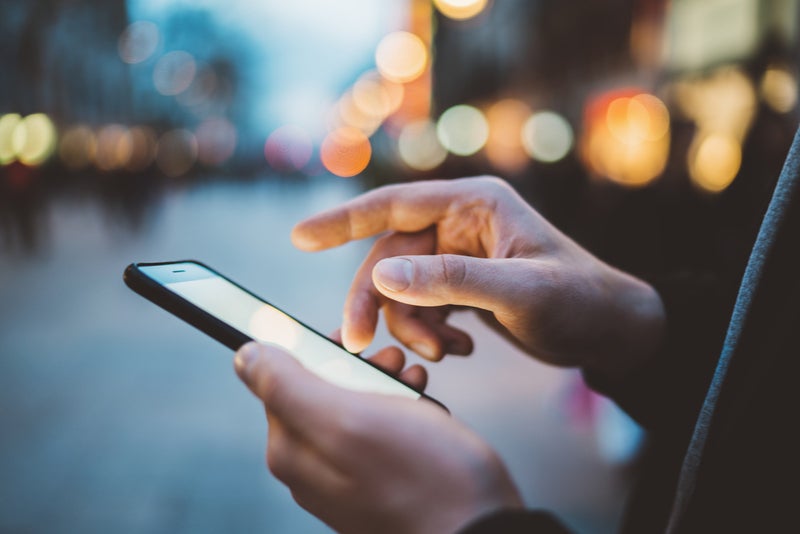
The digital divide may exclude vulnerable people from the Covid-19 tracing app, according to cybersecurity company Anomali.
The NHSX Covid-19 contact-tracing app was launched on the Isle of Wight on 5 May, and the NHS plans to roll out the app more widely by the end of May.
The app uses bluetooth to work out how far away a device is from others, anonymously notifying people if they have come into contact with someone who has reported coronavirus symptoms.
However, a study conducted by Censuswide on behalf of Anomali surveying thousands of people across the UK has revealed that several hurdles may stand in the way of the app making a difference in slowing the spread of coronavirus.
Half of respondents said they know at least one person who does not have the technology, such as a smartphone, needed to use the Covid-19 tracing app.
According to Finder, although 79% of UK adults own a smartphone, just 40% of those over 65 can access the internet using their phone. Furthermore, 1.9m households in the UK do not have access to the internet.
How well do you really know your competitors?
Access the most comprehensive Company Profiles on the market, powered by GlobalData. Save hours of research. Gain competitive edge.

Thank you!
Your download email will arrive shortly
Not ready to buy yet? Download a free sample
We are confident about the unique quality of our Company Profiles. However, we want you to make the most beneficial decision for your business, so we offer a free sample that you can download by submitting the below form
By GlobalDataDigital inclusion charity the Good Things Foundation also warned that even among those with internet access, 7 million people in the UK lack the essential digital skills to utilise tools such as the contact-tracing app.
Therefore the digital divide could limit the number of people able to use the app, limiting its potential effectiveness and excluding vulnerable groups.
“The rule of critical mass demands that at least 60% of the population utilises the app in order for it to be effective. However, these findings point to a significantly diminished pool of users and thus, the critical mass fundamental to the app’s performance now hangs in the balance,” said Jamie Stone, head of EMEA at Anomali.
“Moreover, many of the individuals without the necessary technology likely come from an older generation, or from low-income backgrounds. In this way, excluding the most vulnerable of society from any benefits this app might bring.”
Covid-19 contact-tracing app faces adoption challenges
The survey also assessed people’s attitudes towards the app. 29% of respondents said they would not download the app, and a further 27% said they were unsure. Over a third were concerned about data collection on the app, and 48% expressed that they were not confident in the government’s ability to secure the app against cybercriminals.
However, 51% believe that the app will be either somewhat or very effective in controlling the spread of Covid-19.
A senior NHS employee told the Health Service Journal that the app had not met initial security requirements needed for the app to be included in the NHS app library, describing its as “a bit wobbly”. However, the Department of Health and Social Care has said that this is “factually untrue”.
During the trial on the Isle of Wight, just 40% of residents have downloaded the app, with many reporting technical difficulties.
“These findings are truly enlightening,” said Stone. “On the one hand, the public appear to be optimistic about the usefulness of the NHSX Covid-19 contact tracing app. Perhaps, following months of lockdown, individuals see this as an opportunity to return to normal life whilst maintaining some control over the spread of this disease.
“Yet, when it comes down to it in practice, the majority of the population are not willing to use the app, and many may not even possess the technology to run it. Without this vital participation, any potential that the app may have had is jeopardised. In other words, we might find that only countries who enforce a strict adoption of the app stand to benefit from the scheme.”
Read more: NHS digital transformation before coronavirus slammed in government report.



